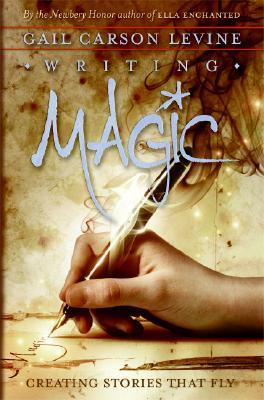This one I mined from Gail Carson Levine's great book (geared for children but excellent for all ages) Writing Magic.
Prompt:
“The first time I saw Stephen, he painted a hex sign on my right arm, and I couldn't move my fingers for three hours.”
Here's what I wrote:
The first time I saw Sam1, he painted a hex sign on my arm and I couldn’t move my fingers for three hours. The next time he painted a lightning bolt encircled by an ivy vine, and I vomited for twenty minutes straight. I took him down to the med-bot repairshop before I fell ill again. At this rate my unit? corridor? barracks? some kind of collective noun here to indicate grouping of dwellings, but in a spacestation environment, not turf. At this rate my … <word>’s occupants were going to spend more time being sickened by our medbot than we were being helped by him.Old McCreary looked up when I wheeled Sam1 through the iris of his door (better way to indicate some cool spacey-waycey door mechanism…) “Oh no, I’m not working on that lump of metal again. He got me with a nanoneedle for supposed Vegaian flu last time. I couldn’t bend my left knee for a week!” McCreary wheeled himself back into the dustiest corner of his dusty grimy shop. The smell of mechanical lubricant hung thick in the air.“McCreary,” I said, trying to keep my voice firm but cheerful. He hated grumpy customers. “I need some help with our medbot unit. He’s clearly suffering from a fault or defect. My comrades on my corridor <snicker> need a fully functioning medbot to be able to perform their duties and attend school and work. Can you please assist us?”McCreary was, after all, a mostly mechanized android. He had a skinplate, sure, but so did a lot of them. Sam1, for instance. When given a direct request by a fully skinned human, his programming should require him to comply. Should being the operative word here. I chewed the inside of my lip as I waited for the old bot repairman to answer.You could almost see his android brain executing lines of code related to interactions with humans. First his brow furrowed, then his lips pulled back to reveal his partially yellowed teeth. For a skinplate, he went full-bore into the realistic stuff. Probably chewed Chetle, too. That crap will stain anything. The smile was clearly faked, but the words that followed were what I needed to hear.
“Certainly Miss Shasta. I would be happy to attempt to assist you.”
I docked my credit chit before he could change his mind, gave Sam1 a light pat on the back of the shoulder, out of reach of his poorly-practicing medical appendages, and bolted out the opening into the mad chaos of Underlayer 7 on Laxima station.
Why don't you give it a whirl and see where your writing takes you?

